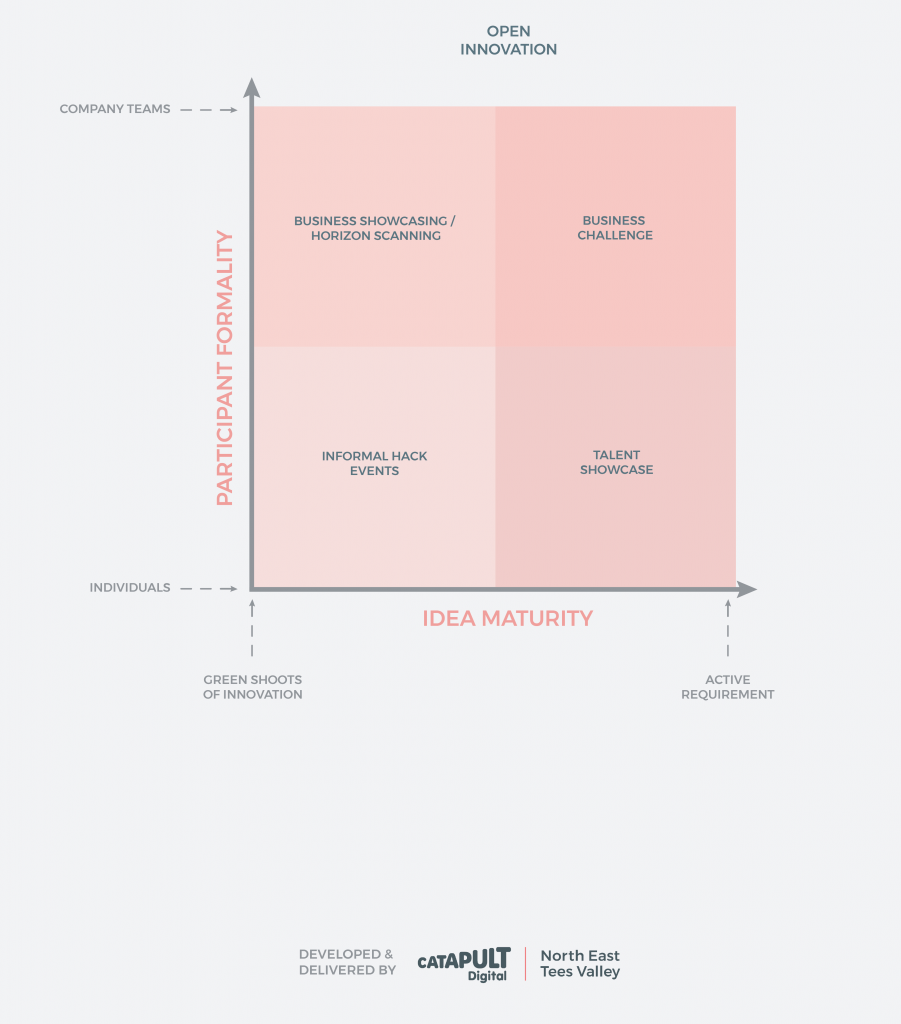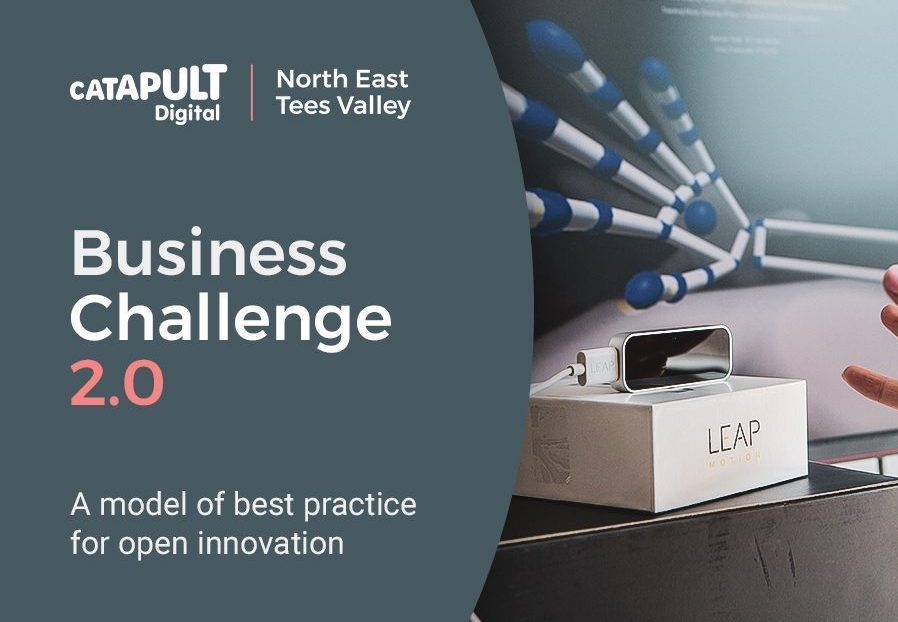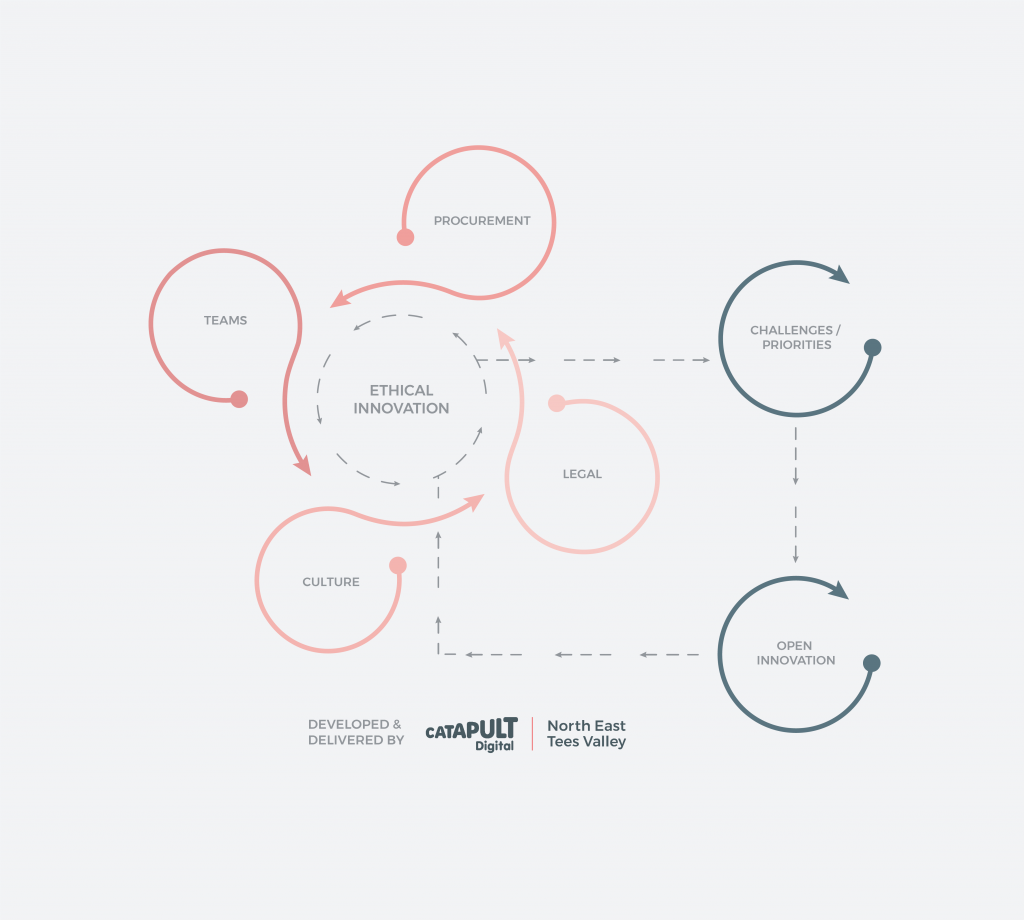At Digital Catapult NETV we’ve spent almost 5 years supporting businesses in the North East with the adoption and proliferation of emerging technologies. Our experience of bringing together large corporates and SMEs has led to us developing a new framework for corporate innovation.
Corporate Innovation – the process by which large enterprises solve internal challenges using new technologies – is having more than a moment. Over the last year or so we’ve seen an increasing buzz around ‘Innovation Challenges’, ‘Business Challenges’, ‘Tech Challenges’; all terms to describe how corporate innovation gets done.
At Digital Catapult NETV, we’ve been delivering Business Challenges for the last four years. We developed the format we use after seeing lots of businesses frustrated with hackathons, which often would not leading to any meaningful relationship between SME and corporate.
Business Challenges provide a structured process for solving internal corporate challenges by connecting companies with SME suppliers. For us, it’s part of a suite of services we offer, depending on our clients’ requirements and how far along they are in the ‘innovation journey’.
 Our Open Innovation Model
Our Open Innovation Model
Over the last year though, we’ve noticed some grumblings from the marketplace that echo what we heard three years ago about hackathons. As more and more corporates look to small businesses to help them solve issues, naturally more brokers or service providers start to offer support. But without an in-depth knowledge of how both startups and corporates work, without understanding the intricacies of procurement processes and without giving due consideration to the financial implications of such a process, Business Challenges can lead to further frustration.
At Digital Catapult NETV the process we use has been continuously iterated, based on the feedback we’ve received. And now we believe our Business Challenge format addresses all of these frustrations up front. So today, we’re excited to announce Business Challenges 2.0 – a model of best practice underpinned by the concept of ethical innovation.

Our commitment – to both our corporate clients and the startups and SMEs we work with – is that every Business Challenge 2.0 that we deliver, will be built on the following framework:
- There is a clearly defined problem
- There is an agreed budget (and clarity on any assumptions made)
- Timescales are agreed (including application process, procurement, deployment)
- There is significant internal buy-in (from senior management & all relevant teams)
- There is a roadmap for partnerships (long term intentions)
- Both parties will be made clear on the Intellectual Property position
Ethical innovation is the concept of the right innovation, at the right time, for the right price. It was conceptualised and developed by our Head of Innovation, Naomi Morrow, and is the cornerstone for Digital Catapult NETV’s Business Challenges 2.0.

Digital Catapult NETV’s Ethical Innovation
We’ve built our Business Challenge 2.0 framework into all areas of delivery – from how we talk to clients, to writing our briefs, all the way through to how agreements are structured. So you know upfront if you work with Digital Catapult NETV on a Business Challenge 2.0, exactly what the project will involve.
And why are we announcing this, with the details of our framework? Because we want to encourage anyone that is considering running a business challenge (or any other type of innovation project) to make sure they’re following best practice. Our framework makes challenges fair and workable for startups and SMEs, as well as making wide-scale implementation far more likely for corporate clients.
Corporate Innovation can be an incredibly valuable process for everyone involved, if done well. We believe the Business Challenge 2.0 framework is the way to ensure this.
If you’re interested in how your company can benefit from a Business Challenge 2.0, please contact our Head of Innovation who can discuss the process in more detail.




